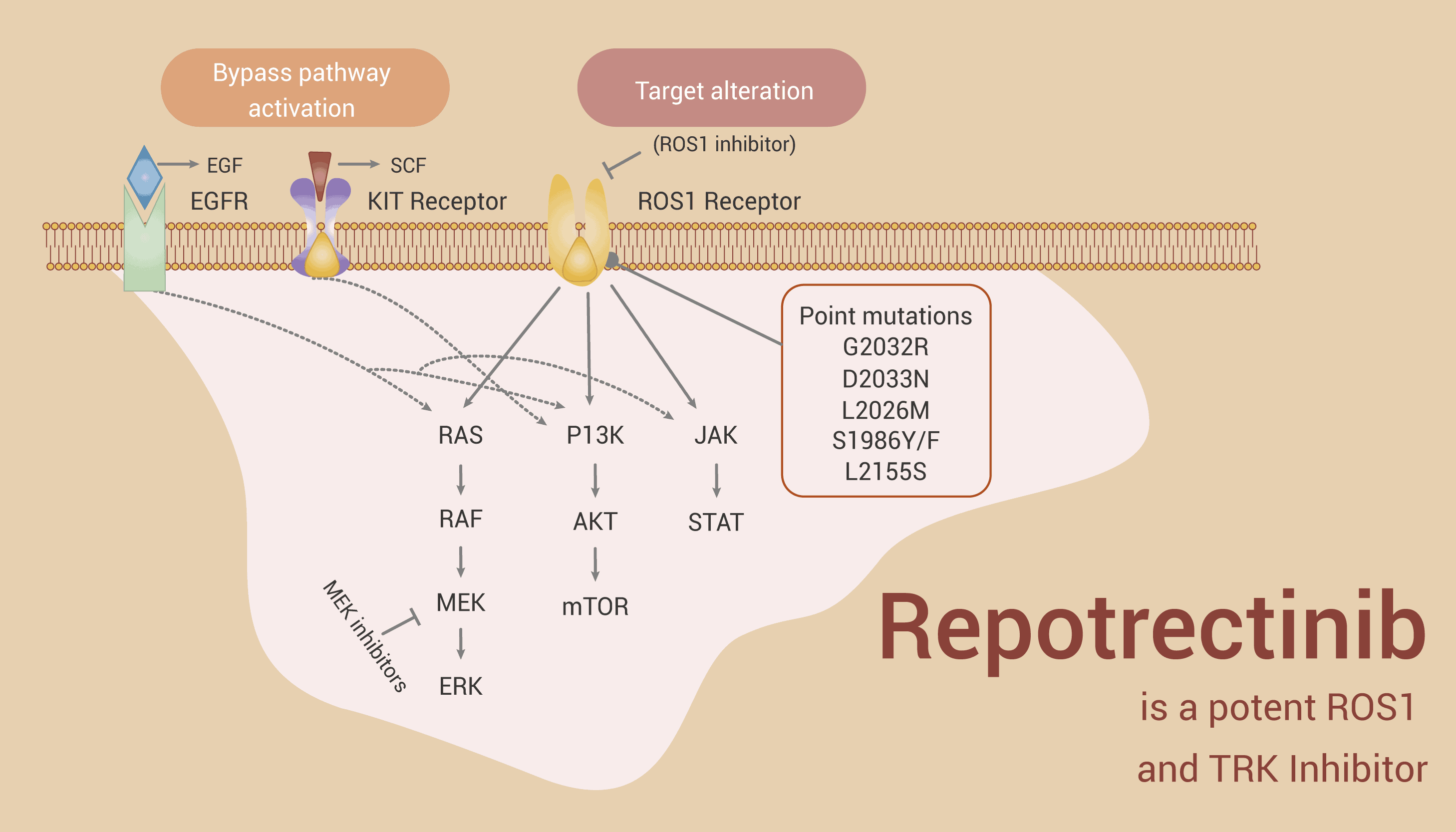Repotrectinib is a potent ROS1 (IC50=0.07 nM) and TRK (IC50=0.83/0.05/0.1 nM for TRKA/B/C) inhibitor. The IC50 values are 0.83/0.05/0.1 nM for TRKA/B/C, respectively. Repotrectinib potently inhibits WT ALK (IC50=1.01 nM).
Repotrectinib inhibits mutant ALKs. It inhibits ALK G1202R with an IC50 of 1.26 nM. Besides, it inhibits ALK L1196M with an IC50 of 1.08 nM). Repotrectinib also inhibits a variety of other kinases, including JAK2, LYN, Src, and FAK. The IC50 values are 1.04, 1.66, 5.3, and 6.96 nM, respectively for those kinases.
In cell proliferation assay, Repotrectinib effectively overcomes this primary resistance with an IC50 of 100 nM. Additionally, it exhibits a strong of phosphorylation of EML4-ALK with an IC50 of 13 nM. In a wound-healing assay, Repotrectinib inhibits H2228 cell migration with similar activity to saracatinib.

Repotrectinib effectively inhibits tumor growth in vivo in ALK WT and ALK G1202R xenografts.
In EGFR-mutation-positive cell lines, Repotrectinib inhibits PC9, H1975, HCC4006, and HCC827 cell growth. The IC50 values are 1.00, 1.00, 1.48, and 0.43 μM, respectively. Repotrectinib is synergistic with gefitinib or osimertinib in PC9 and H1975 cells, respectively. Additionally, TPX-0005 is consistently synergistic or additive with all EGFR TKIs tested.
Gefitinib plus Repotrectinib abolishes STAT3, paxillin, and YAP1 phosphorylation. Additionally, they increase the expression of cleaved caspase-3.
Repotrectinib effectively inhibits tumor growth in vivo in ALK WT and ALK G1202R xenografts. TPX-0005 significantly potentiates the effect of osimertinib in the PC9 and H1975 models. Additionally, there exhibits no substantial toxicity after the combination. In order to determine the effect of EGFR TKI with Repotrectinib in vivo, nude mice bearing PC9 or H1975 cells are used.
Repotrectinib significantly potentiates the effect of osimertinib in the PC9 and H1975 models. Additionally, there exhibits no substantial toxicity after the combination.
In conclusion, Repotrectinib is a potent ROS1 and TRK inhibitor. And Repotrectinib has anti-cancer activity.
[1]. Dayong Zhai, et al. Cancer Research. July 2016
[2]. Karachaliou N, et al. EBioMedicine. 2018 Mar;29:112-127.